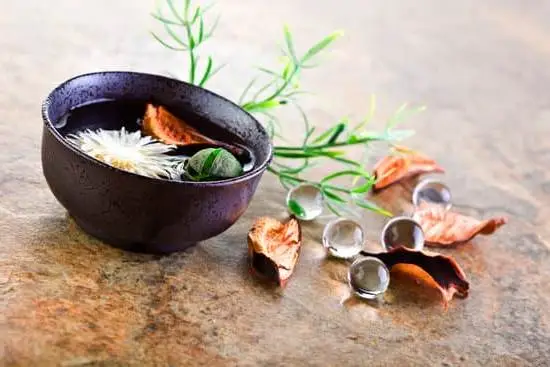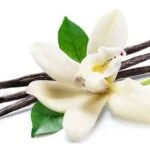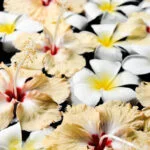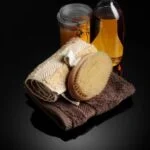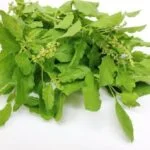Tea tree aromatherapy is a holistic practice that harnesses the power of essential oils derived from the leaves of the tea tree plant. With its origins deeply rooted in ancient traditions, aromatherapy has become a popular method for promoting physical and mental health. This introductory section will delve into the concept of aromatherapy, introduce tea tree essential oil, and provide a brief history of its origins.
Aromatherapy is an age-old practice that involves using natural plant extracts, known as essential oils, to enhance well-being. These oils are highly concentrated and capture the essence and fragrance of various plants. When used in aromatherapy, these oils can stimulate the senses through inhalation or absorption into the skin, offering numerous therapeutic benefits.
Among the wide array of essential oils available, tea tree oil stands out for its versatility and beneficial properties. Tea tree oil is derived from Melaleuca alternifolia, a small tree native to Australia. It has been used by indigenous communities for centuries due to its remarkable healing properties.
Renowned for its antibacterial, antifungal, and antiseptic qualities, tea tree oil has become one of the most popular essential oils in aromatherapy today. Its effectiveness extends beyond skincare into haircare and overall wellness. Its ability to combat various skin issues such as acne and inflammation makes it a valuable addition to any skincare routine. Additionally, tea tree oil promotes scalp health and aids in hair growth while also supporting immune function and providing mental relaxation.
In this article, we will explore the diverse benefits of tea tree aromatherapy in detail. From clearing skin woes to promoting hair and scalp health, boosting immunity to enhancing mental wellness – this ancient practice offers holistic solutions for modern-day concerns.
Whether you’re new to aromatherapy or already familiar with its wonders, delving into tea tree’s vast potential can unlock new dimensions of well-being. So let’s embark on this aromatic journey and uncover the incredible benefits tea tree aromatherapy has to offer.
The Power of Tea Tree Aromatherapy
Tea Tree Aromatherapy is known for its powerful and diverse range of benefits that can enhance overall wellness. This section will provide an in-depth overview of the various advantages associated with using Tea Tree essential oil in aromatherapy.
Antibacterial, Antifungal, and Antiseptic Properties
One of the key properties of Tea Tree essential oil is its potent antibacterial, antifungal, and antiseptic properties. These properties make it a valuable ingredient in skincare and haircare products as well as for treating minor wounds and infections. Tea Tree oil contains compounds like terpinen-4-ol, which are responsible for its antimicrobial activity. It has been traditionally used by indigenous Australians for centuries to treat various skin conditions and promote healing.
Skincare Benefits
Tea Tree aromatherapy is highly regarded for its effectiveness in addressing common skin concerns such as acne, blemishes, and inflammation. Its antibacterial properties help to reduce the growth of acne-causing bacteria on the skin, making it a natural alternative to harsh chemical-based acne treatments. Additionally, Tea Tree oil can help soothe irritated skin and reduce redness and swelling when applied topically.
When using Tea Tree essential oil for skincare purposes, it is essential to dilute it properly with a carrier oil such as jojoba or almond oil before applying it directly to the skin. For oily or acne-prone skin types, adding a few drops of Tea Tree oil to a gentle cleanser or toner can help control excess sebum production and prevent breakouts.
Hair and Scalp Health
Tea Tree aromatherapy is also beneficial for maintaining a healthy scalp and promoting hair growth. The antimicrobial properties of Tea Tree oil help combat common scalp issues such as dandruff, itchiness, and dryness. By unclogging hair follicles and nourishing the scalp, it can contribute to healthier hair growth.
To use Tea Tree oil for the hair and scalp, a few drops can be added to a regular shampoo or conditioner. Massaging this mixture into the scalp will help stimulate blood circulation and enhance its effectiveness. Alternatively, creating a DIY hair mask by combining Tea Tree oil with natural ingredients like coconut oil or yogurt can provide deep hydration and nourishment to the hair strands.
Overall, Tea Tree aromatherapy offers numerous benefits for skincare, haircare, immunity, mental wellness, and household cleaning. Its versatility and natural properties make it a popular choice among those seeking holistic solutions for various health concerns.
Clearing Skin Woes with Tea Tree Aromatherapy
Tea Tree Aromatherapy and its Origins
Aromotherapy is a holistic healing practice that utilizes essential oils to promote physical, mental, and emotional well-being. One such essential oil that has gained popularity in recent years is Tea Tree oil. Derived from the leaves of the Melaleuca alternifolia tree native to Australia, Tea Tree oil has a long history of medicinal use by Indigenous Australians.
The Power of Tea Tree Aromatherapy: An Overview of its Benefits
Tea Tree essential oil is known for its potent antibacterial, antifungal, and antiseptic properties. These properties make it highly effective in treating a variety of skin concerns and promoting overall skin health. Many people turn to Tea Tree aromatherapy to address common issues such as acne, blemishes, and inflammation.
One of the most well-known benefits of Tea Tree aromatherapy is its effectiveness in clearing up skin problems. Its antimicrobial properties help combat bacteria on the skin that can lead to breakouts and acne. Additionally, Tea Tree oil’s anti-inflammatory effects can help reduce redness and swelling associated with skin conditions like eczema or psoriasis.
When using Tea Tree oil for skincare, it’s important to remember that it should always be diluted before applying it directly to the skin as it can cause irritation or allergic reactions for some individuals. For those with oily or acne-prone skin, a few drops of tea tree oil can be added to a carrier oil like jojoba or coconut oil and applied topically to problem areas.
Individuals with sensitive or dry skin may benefit from adding a few drops of tea tree oil into their existing moisturizer or incorporating it into homemade cleansers or face masks.
Many people have experienced positive results with the use of Tea Tree aromatherapy for their skin concerns. Testimonials frequently highlight how regular use of Tea Tree oil has helped improve the appearance of their skin, reduced acne breakouts, and provided relief from itching and irritation. However, as with any natural remedy, results may vary depending on an individual’s specific needs and skin type.
Tea Tree Aromatherapy for Hair and Scalp Health
When it comes to promoting a healthy scalp and luscious hair, Tea Tree aromatherapy can work wonders. Tea Tree oil has been praised for its ability to address common hair and scalp concerns such as dandruff, itchiness, and dryness. Its powerful antifungal properties make it an effective solution for maintaining a balanced and nourished scalp.
One of the primary benefits of Tea Tree oil for hair health is its ability to combat dandruff. Dandruff can be caused by an overgrowth of yeast on the scalp, leading to flakiness and irritation. Tea Tree oil has antifungal properties that help eliminate the yeast responsible for dandruff, providing relief from itching and reducing flakiness.
To use Tea Tree oil for dandruff control, you can add a few drops to your regular shampoo or conditioner. Massage it into your scalp gently and leave it on for a few minutes before rinsing thoroughly. Alternatively, you can create a soothing scalp treatment by diluting Tea Tree oil with a carrier oil such as coconut oil or jojoba oil, then apply the mixture directly to your scalp.
In addition to addressing dandruff concerns, Tea Tree aromatherapy also helps alleviate itchiness and dryness caused by various factors such as product buildup or environmental factors. By using Tea Tree oil in your hair care routine, you can hydrate your scalp, reduce inflammation, and promote healthier hair growth.
Whether you choose to incorporate it into your shampoo or create a homemade hair mask with other nourishing ingredients like honey or avocado, the versatility of Tea Tree oil allows you to personalize your hair care routine according to your specific needs.
By embracing the benefits of Tea Tree aromatherapy for hair and scalp health, individuals can experience a significant improvement in their overall wellness. From combating dandruff to relieving itchiness and dryness, Tea Tree oil provides a natural and effective solution for those seeking to maintain a healthy scalp and vibrant hair.
Experimenting with various Tea Tree oil applications in hair care can help individuals find the best approach that suits their specific needs, leading to enhanced confidence and a renewed sense of well-being.
Boosting Immunity and Fighting Infections with Tea Tree Aromatherapy
Tea Tree essential oil has long been celebrated for its potent antibacterial, antifungal, and antiseptic properties, making it a powerful tool for boosting immunity and fighting infections. When used in aromatherapy, Tea Tree oil can help strengthen the immune system and combat various respiratory issues, colds, and flu symptoms. Additionally, diffusing Tea Tree oil can purify the air and create a healthier environment that discourages the spread of illnesses.
One of the key benefits of Tea Tree aromatherapy is its ability to support respiratory health. The oil’s natural properties make it an excellent remedy for clearing congestion, reducing coughing, and soothing irritated airways.
For those struggling with respiratory conditions such as bronchitis or sinusitis, inhaling Tea Tree oil can provide much-needed relief. To experience these benefits, simply add a few drops of Tea Tree essential oil to a diffuser or humidifier and let it fill the room with its invigorating aroma.
In addition to respiratory health, Tea Tree aromatherapy is also effective in fighting infections. The oil’s antimicrobial properties make it ideal for battling viruses and bacteria that may cause illnesses.
When applied topically, Tea Tree oil can help treat minor cuts, wounds, and skin infections by preventing bacterial growth and promoting faster healing. It can also be used as a natural hand sanitizer by diluting a few drops of Tea Tree essential oil in a carrier oil like coconut or jojoba oil.
To fully utilize the immune-boosting potential of Tea Tree aromatherapy, it’s important to diffuse the oil regularly in your living space. Consider creating a tea tree blend by combining a few drops of Tea Tree essential oil with other immune-supporting oils like eucalyptus or lavender. This blend can be diffused during times when you want to strengthen your body’s defense mechanisms against common ailments.
As with any essential oil usage, it’s crucial to be mindful of proper dilution and usage guidelines. Tea Tree oil should always be diluted before topical application, as it can cause skin irritation in its pure form. Remember to consult with a healthcare professional or aromatherapist for personalized advice on incorporating Tea Tree aromatherapy into your wellness routine, especially if you have any existing health conditions or are pregnant.
By embracing the versatility of Tea Tree aromatherapy, individuals can harness the power of this remarkable essential oil to boost their immunity and fight infections. Whether it’s diffusing Tea Tree oil to purify the air or applying it topically for its antibacterial properties, this natural remedy has countless applications in supporting overall wellness. Incorporating Tea Tree essential oil into your daily routine may just be the key to a healthier and more vibrant life.
Mental Wellness and Tea Tree Aromatherapy
Tea Tree Aromatherapy has proven to be a powerful tool in promoting mental wellness and emotional balance. The calming and soothing effects of Tea Tree oil make it an excellent choice for those seeking relief from anxiety, stress, and other mental health concerns. Incorporating Tea Tree oil into your self-care routine can help create a sense of relaxation and tranquility.
One popular method of using Tea Tree oil for mental wellness is through aromatherapy. Diffusing Tea Tree oil in your home or office can create a calming atmosphere that promotes relaxation and reduces tension. Simply add a few drops of Tea Tree oil to a diffuser or humidifier, and breathe in the fragrant aroma to experience its therapeutic benefits.
Another effective way to incorporate Tea Tree oil into your mental wellness routine is through bath soaks or massages. Adding a few drops of Tea Tree oil to your bathwater can create a soothing experience that calms the mind and promotes overall relaxation. Alternatively, mixing Tea Tree oil with carrier oils like coconut or jojoba oil and using it as a massage oil can help relieve muscle tension, reduce stress, and enhance feelings of well-being.
It is important to note that while Tea Tree essential oil offers numerous benefits for mental wellness, it should always be used with caution. Some individuals may have allergies or sensitivities to the oil, so it is recommended to perform a patch test before using it extensively. Additionally, always dilute Tea Tree oil properly before applying it topically, as it can cause skin irritation if used undiluted.
Tea Tree Aromatherapy for Household Cleaning
Tea Tree oil is not only a powerful tool in skincare and wellness routines, but it also has remarkable natural cleaning properties that make it an excellent choice for household cleaning. In this section, we will explore the benefits of using Tea Tree oil as an eco-friendly alternative to conventional cleaning products, provide recipes for DIY cleaners using Tea Tree oil, and discuss its effectiveness in controlling mold.
Using Tea Tree oil for household cleaning offers several advantages. Firstly, Tea Tree oil is known for its antibacterial and antifungal properties, making it highly effective in killing germs and preventing the growth of mold and mildew. Secondly, unlike chemical-filled cleaning products, Tea Tree oil is non-toxic and safe to use around children and pets. Additionally, it has a pleasant scent that leaves your home smelling fresh and clean.
| Ingredients | Measurement |
|---|---|
| Vinegar | 1 cup |
| Water | 1 cup |
| Tea Tree essential oil | 10-15 drops |
This DIY cleaner can be used on various surfaces such as countertops, sinks, floors, and even glass. The combination of vinegar’s natural acidity and Tea Tree oil’s antimicrobial properties creates a powerful cleaning solution.
In addition to all-purpose cleaners, Tea Tree oil can also be used to prevent the growth of mold in damp areas. Simply combine Tea Tree oil with water in a spray bottle and mist it onto areas prone to mold growth, such as showers and bathrooms. The antifungal properties of Tea Tree oil will inhibit the growth of mold and help keep your home clean and healthy.
By incorporating Tea Tree oil into your household cleaning routine, you not only create a safer environment for yourself and your loved ones but also contribute to a healthier planet by reducing your use of chemical-laden cleaning products. Experiment with different DIY recipes using Tea Tree oil and discover the natural cleaning power of this versatile essential oil.
Precautions and Usage Tips for Tea Tree Aromatherapy
Tea Tree oil is a powerful essential oil with numerous benefits, but it is important to use it with caution and proper knowledge. This section will provide valuable precautions and usage tips for Tea Tree aromatherapy, ensuring that readers can safely incorporate it into their wellness routines.
Firstly, it is crucial to be aware of potential allergies and sensitivities to Tea Tree oil. While rare, some individuals may have adverse reactions when using this essential oil. It is recommended to perform a patch test before applying Tea Tree oil topically.
Simply dilute a small amount of the oil with a carrier oil, such as coconut or jojoba oil, and apply it on a small area of skin. Wait for 24 hours to observe any negative reactions before using Tea Tree oil more extensively.
When using Tea Tree oil topically, proper dilution methods should be followed to avoid skin irritation. The general guideline is to use a 2% dilution for most adults, which means adding approximately 12 drops of Tea Tree oil per ounce (30 mL) of carrier oil or lotion. For children and individuals with sensitive skin, a lower dilution of 0.5-1% is recommended.
It is worth noting that Tea Tree oil should never be ingested orally without the guidance of a healthcare professional. While highly beneficial when used correctly, ingesting large amounts or undiluted Tea Tree oil can be toxic and harmful to the body.
| Precautions | Usage Tips |
|---|---|
| Perform a patch test before using Tea Tree oil topically | Dilute Tea Tree oil with a carrier oil or lotion at a 2% dilution for adults |
| Be aware of potential allergies and sensitivities | Use a lower dilution of 0.5-1% for children and individuals with sensitive skin |
| Avoid oral ingestion without professional guidance | Consult with a healthcare professional before ingesting Tea Tree oil orally |
Conclusion
Tea Tree aromatherapy is a powerful and versatile practice that offers numerous benefits for overall well-being. Throughout this article, we have explored the various applications of Tea Tree oil in skincare, haircare, immunity boosting, mental wellness, household cleaning, and more. Its antibacterial, antifungal, and antiseptic properties make it an essential addition to any aromatherapy routine.
In summary, Tea Tree aromatherapy is effective in clearing common skin woes such as acne and blemishes. It can be tailored to different skin types and has received praise from individuals who have experienced positive results. Additionally, Tea Tree oil promotes hair and scalp health by combatting dandruff and dryness. DIY recipes provide easy solutions for incorporating Tea Tree oil into haircare routines.
Furthermore, Tea Tree oil has proven to boost immunity, fight infections and purify the air when used for respiratory issues. Its calming effects on mental health make it an ideal choice to reduce anxiety and stress. Readers are encouraged to explore these various applications of Tea Tree aromatherapy to enhance their overall well-being.
For those looking for high-quality Tea Tree essential oils, it is recommended to research reputable brands that prioritize sustainability and purity. Incorporating Tea Tree aromatherapy into one’s daily routine can bring about numerous benefits while also replacing conventional cleaning products with eco-friendly alternatives. It is important to keep in mind potential allergies or sensitivities to Tea Tree oil and consult with a healthcare professional before use.
In conclusion, embracing the versatility of Tea Tree aromatherapy opens up a world of possibilities for enhancing physical wellness, mental health, and maintaining a clean environment. By exploring the numerous benefits associated with this essential oil, individuals can experience its power firsthand and enjoy all that it has to offer for their overall well-being.
Frequently Asked Questions
What are the benefits of tea tree aromatherapy?
Tea tree aromatherapy offers several benefits due to its natural properties. One of the most notable benefits is its potential anti-inflammatory effect, which may help reduce redness and swelling caused by skin conditions like acne or eczema.
Additionally, tea tree oil has antimicrobial properties that can aid in fighting bacteria, fungi, and viruses, making it useful in treating infections and promoting wound healing. For those struggling with respiratory issues or congestion, tea tree aromatherapy can also act as a decongestant when inhaled, helping to clear the airways and promote easier breathing.
How do you use tea tree aromatherapy?
To use tea tree aromatherapy, there are a few different methods available. One common way is through inhalation using a diffuser or steam inhalation. Adding a few drops of tea tree oil to a diffuser filled with water creates a fine mist that releases the oil into the air.
Breathing in this aromatic mist can offer respiratory benefits and enhance relaxation. Alternatively, steam inhalation involves adding a few drops of tea tree oil to hot water, covering your head with a towel, and inhaling the steam for several minutes. This method can also provide relief for respiratory issues.
When should you not use tea tree oil?
While tea tree oil has numerous beneficial uses, there are certain situations where it should be avoided or used with caution. It is not recommended for use on broken or irritated skin as it may cause further irritation or allergic reactions in some individuals. Pregnant women should exercise caution too since there hasn’t been enough research on its safety during pregnancy.
Furthermore, tea tree aromatherapy should not be ingested in any form as it can have toxic effects if consumed internally. If you have specific health concerns or doubts about using tea tree oil, it’s always best to consult with a healthcare professional before incorporating it into your routine.

Are you looking for a natural way to improve your health and wellbeing?
If so, aromatherapy may be the answer for you.

